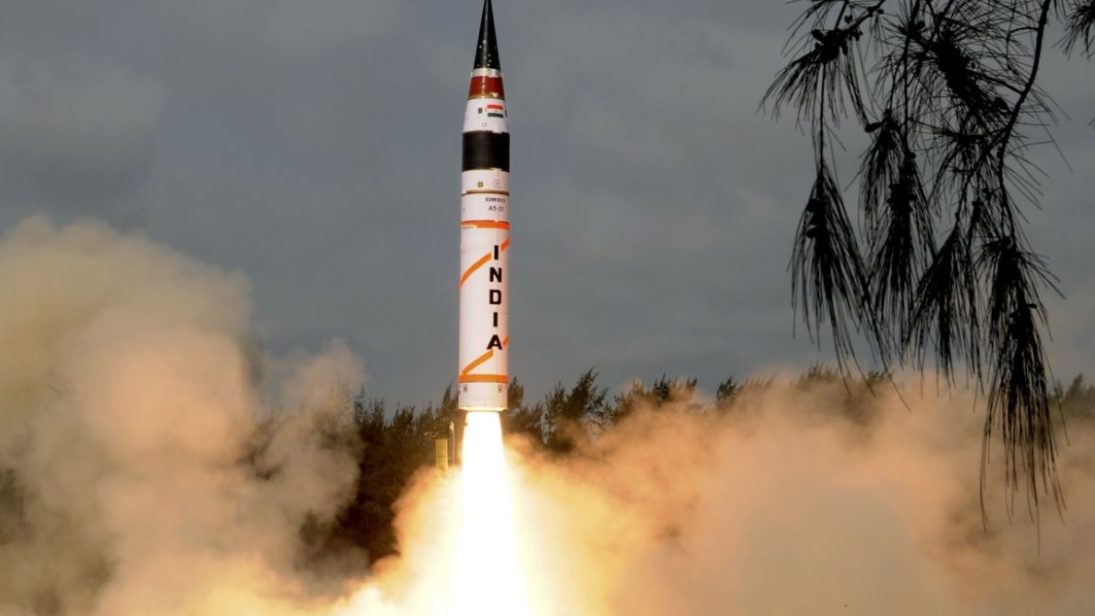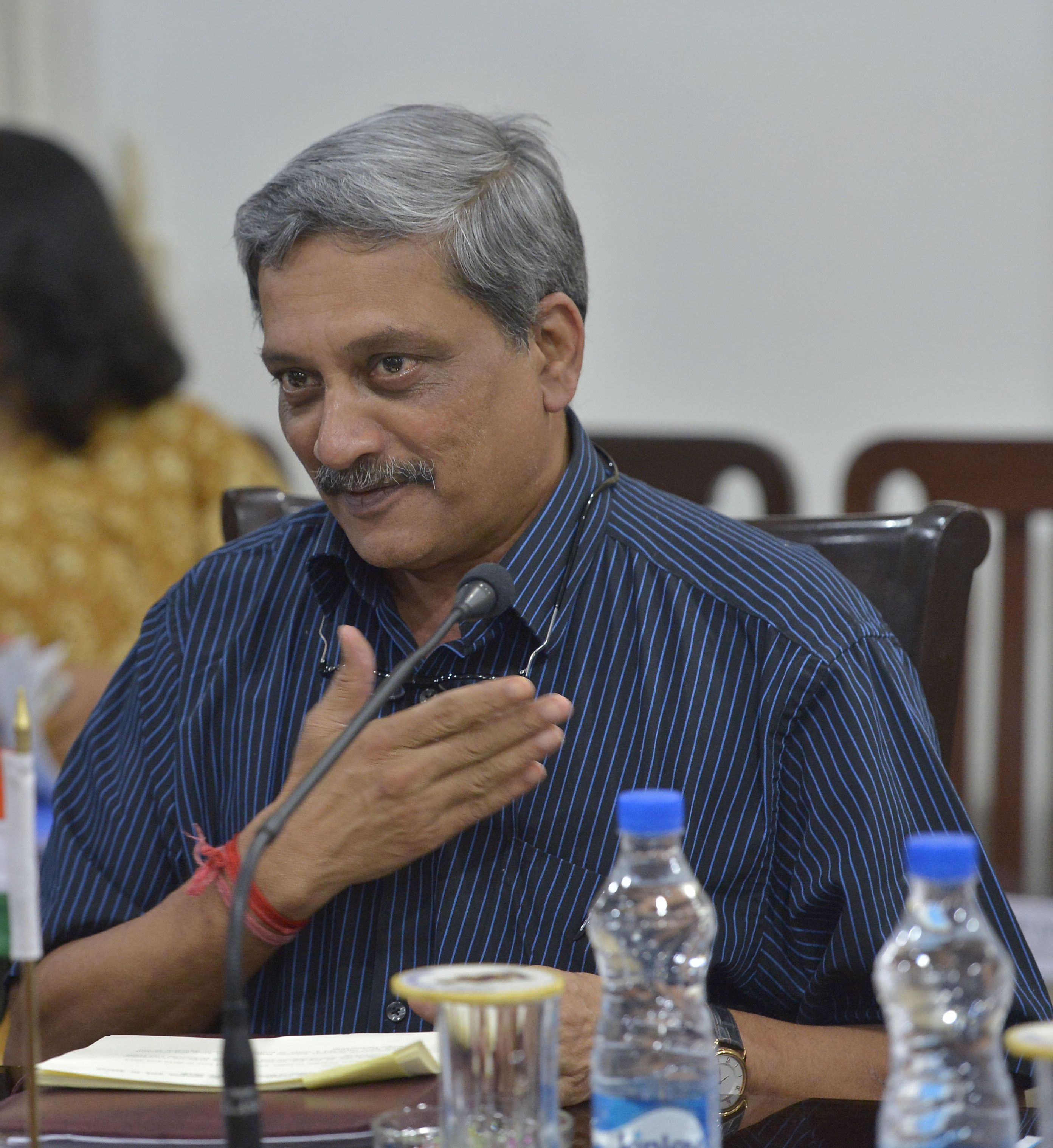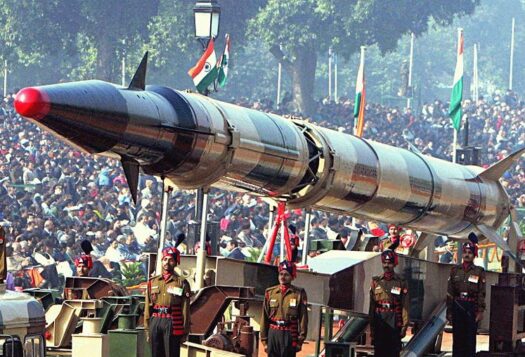
India’s defense minister Manohar Parrikar stirred a new controversy recently with his comments on India’s no first use (NFU) policy at a book launch ceremony in New Delhi. While responding to a question, the defense minister suggested that India should not “bind” itself and instead of affirming an NFU policy, India should say that it is “a responsible nuclear power and I will not use it irresponsibly.” Although he further added that this was his personal view and that the nuclear doctrine “has not changed in any government policy,” the comment immediately went viral, inviting criticism from various circles as being irresponsible. A spokesperson from the Ministry of Defence later issued a statement clarifying that this was Parrikar’s personal opinion and did not reflect India’s official policy. His statement has revived the discussion on the implications of an NFU pledge, its political significance, and how it plays into India-Pakistan nuclear competition.
Debate Through the Years
There is an enduring debate among the critics and proponents of the NFU policy within India. Nonetheless, NFU has remained a part of India’s nuclear posture since its overt nuclearization. India’s National Security Advisory Board declared NFU as part of its draft nuclear doctrine in 1999. However, this was not an absolute pledge of NFU because in 2003, India added a caveat to the official statement on its nuclear doctrine stating that “in the event of a major attack against India, or Indian forces anywhere, by biological or chemical weapons, India will retain the option of retaliating with nuclear weapons.”
There were calls to abandon the NFU pledge altogether in later years, but there was no official move in that direction. In 2014, the ruling Bharatiya Janata Party (BJP) once again raised the issue and alluded to the revision of India’s nuclear doctrine, announcing in its election manifesto the intention “to revise and update (the nuclear doctrine), to make it relevant to challenges of current times.” This announcement indicated the beginning of a renewed conversation within Indian strategic circles about a possible change in India’s nuclear policy, especially NFU, as highlighted by the party leaders. However, after assuming office, Prime Minister Narendra Modi, during his visit to Japan to work out a civil nuclear agreement, stated, “[…]Currently, we are not taking any initiative for a review of our nuclear doctrine.” The statement was perhaps aimed more at allaying Tokyo’s concerns over India’s non-proliferation commitments, but it put the NFU debate to rest once again.

NFU: Pros and Cons
NFU as a policy is based on political declaration with no specific means available for its verification. In the event of a crisis situation, there are no physical barriers to ensure the sanctity of the political rhetoric and prevent the first use of nuclear weapons. Thus, an NFU pledge by any nuclear armed state will be viewed with caution and some degree of ambiguity by the adversary. While a certain level of ambiguity is considered good for nuclear deterrence, in various other aspects of nuclear posture, such as force structure and operational strategy, any element of doubt or ambiguity displayed by the state about its adherence to an NFU pledge would lead to confusion and render its inviolability completely ineffective. Interestingly, India and China are the only two states of the nine possessing nuclear weapons to have explicitly made NFU a part of their nuclear doctrines. However, neither China nor India takes one another’s NFU on face value. Similarly, neither the United States nor Pakistan has expressed absolute faith in the NFU pledges of China or India, respectively.
India’s conventional military strength vis-a-vis Pakistan, in conjunction with China’s NFU pledge, allows India to declare an NFU policy. This is, however, not a stand-alone feature of its nuclear posture. Citing its NFU pledge, India flaunts itself as a “responsible” nuclear weapon state while adding additional features to its nuclear arsenal. India uses the NFU pledge as a justification for its ballistic missile defense system against Pakistan’s no NFU policy. Similarly, India has redefined the minimalism of credible minimum deterrence postures on the pretext of maintaining an assured second strike capability and to demonstrate its ability to retaliate massively in response to Pakistan’s first strike. India also dismisses concerns over its weapons modernization on the same pretext. Moving away from the NFU pledge would affect India’s nuclear outlook and will require a review of its nuclear postures to avoid being seen as a revisionist state on the political front. Therefore, in view of the associated advantages of maintaining its NFU policy, it is highly unlikely that India, in this transitional phase, would officially bring a change in its NFU policy.
Conclusion
The latest controversy on India’s NFU status has surfaced at a time when India-Pakistan relations are already at their lowest, in the aftermath of the militant attack near Uri in Indian-administered Kashmir. The continuous cross-border firing and shelling has resulted in significant casualties on both sides. Amidst growing tensions on the border, Pakistan views Parrikar’s statement as not only dangerous for the region but also “a threat to the global peace and stability,” and a testimony to “India’s doublespeak.”
In such an environment, any confusion about India’s nuclear posture arising from the “personal” views of the defense minister would be highly destabilizing. It might not bring a significant change in Pakistan’s operational nuclear strategy but certainly will increase the alertness level. Thus, the defense minister’s statement will require a clarification from the highest political offices in India to transform confusion into ambiguity and to regain relative nuclear stability.
The opinions expressed above are those of the author and do not necessarily reflect the views of the organizations with which she is affiliated.
Editor’s note: This piece is part of a two-part series examining the Indian defense minister’s recent comments questioning India’s no first use policy, and assessing whether ambiguity in a state’s nuclear doctrine provides deterrence options, what this would mean when applied to the India-Pakistan relationship, and what impact it will have. Read the entire series here.
***
Image 1: Ministry of Defence, India
Image 2: Wikimedia (cropped)


